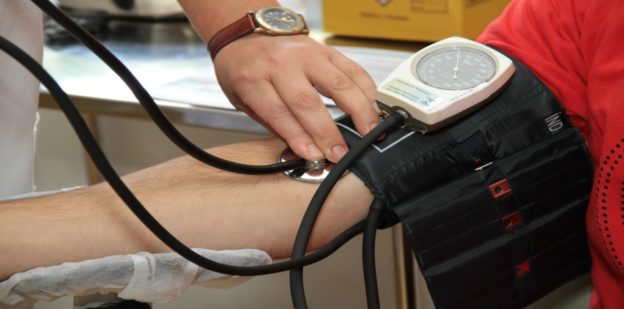

January 2, 2017 | Categories: Health Care
If one of your resolutions is to have a healthier 2017, get a jumpstart by scheduling your doctors’ appointments as soon as possible so you have baseline knowledge of where your body’s at now and where you need to be for optimal health.
Here, Michelle G. Festa, MD, Virtua Family Medicine, Medford, NJ, shares the 10 screenings she recommend all adult women get. The good news is you can knock a few of these out in one well visit (annual examination) this year, and the rest can taken care of every few years. Here are the 10 most important health screenings for women:
1. Mammograms
Mammography is the primary tool used for breast cancer screenings. The American College of Obstetricians and Gynecologists and The American Cancer Society recommends you start at age 40 and get a mammogram every year after that.
“A lot of doctors like myself still order them yearly for 50 and older,” says Dr. Festa. If you have a family history of BRCA gene mutation, especially if women got breast cancer at a young age, your doctor might recommended you get tested for this. If you don’t have a family history, it’s unlikely you’ll get this test. Remember to do your own breast self-examination monthly and call your doctor if you feel any unusual bumps or lumps.
2. Pap Smear
This cervical cancer-screening test can be done during your annual ob/gyn visit but shouldn’t be started before 21 because there are too many false positives, says Dr. Festa. From ages 21 to 30 it depends on your risk, but could be done every year or every three years. From age 30 on, it’s recommended every three years. If you get screened for the human papillomavirus (HPV), get that test every five years. Have a “well woman” visit every year for prevention, recognizing any risk factors for disease, identifying medical problems and any changes in your health.
3. Colonoscopy
A colonoscopy is a screening test for colorectal (colon) cancer. The start date for this test is age 50. If you have a family history of colon cancer, get this screening 10 years before colon cancer was found in first-degree family member. African Americans are recommended to start colonoscopies at age 45. If your test results are normal, you only have to get this every 10 years.
4. Comprehensive Eye Exam
Glaucoma is a group of diseases damage the eye’s optic nerve and can cause vision loss and blindness, according to the National Eye Institute. Glaucoma can be detected at a comprehensive dilated eye exam that will test whether you’ve experienced any peripheral vision loss. Most adults who aren’t experiencing vision problems only have to go to the eye doctor every few years, says Dr. Festa. Get yearly eye exams with glaucoma screening after age 65. If you have a medical condition like diabetes then you should get your eyes checked annually.
5. Blood Pressure
This test should be done during your well visit. If you’re more likely at risk for high blood pressure—like family history, obesity, smoking—get this checked annually. Most likely, the doctor or nurse will check your blood pressure at every office visit.
6. Cholesterol
If you’re not at risk for high cholesterol (you’re at a healthy weight and don’t have family history) the recommended screening starts at age 20, then should be conducted every five years. If your cholesterol is high it would be screened more often, says Dr. Festa. Most people do cholesterol screenings—which involves a blood test and fasting the night before—once a year.
7. Blood Sugar
There’s no routine screening schedule for this but if you fit any of the risk factors—are overweight, have family history of diabetes, or have metabolic syndrome—your GP or gynecologist should give you a blood sugar test to see if you have high blood sugar, prediabetes, or type 2 diabetes.
8. Skin Cancer Screening
Your doctor should do a complete check of your skin from head to toe during your well visit as part of the physical, says Dr. Festa. Let your doctor know if you have a family history of melanoma.
9. Dual Energy X-ray Absorptiometry (Bone Mineral Density Test)
This is bone density screening test is used to diagnose bone loss and osteoporosis risk. It’s recommended for all women age 60 and over, and under age 60 if they have a high risk for osteoporosis. How often you have to repeat the test depends on your results, says Dr. Festa.
10. Immunizations
Once you’ve received the routine childhood immunizations, it’s recommended you get a tetanus shot every 10 years of which one of those should include pertussis (whooping cough). If you’re 60, get a one-time shingles vaccine, and if you’re 65 and over, get a one-time pneumonia vaccine. You should also get the flu shot each year, advises Dr. Festa.
This article originally appeared on Virtua.org.
Leave a Reply